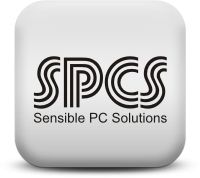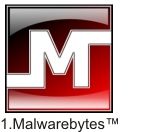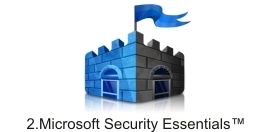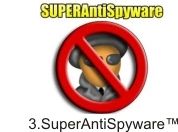Computer Virus Repair | Best Free Antivirus
If any of theses scenarios is true for your PC or laptop, you probably have a virus...
-
An abrupt change in the speed of your computer occurred. It suddenly became slow.
-
Internet no longer works at all.
- Problems with Internet Explorer, Firefox, or other browsers. Example: It takes a long time to open or close your browser.
- Websites you didn't visit suddenly appear or your normal home page was changed.
-
Strange pop ups appear or new add-ons appear in your Internet Browser that you didn't install.

-
New programs appear in your task manager in the lower right corner of Windows.
-
Microsoft OfficeTM software starts slower or is acting strange.

-
Windows takes a very long time to load after you turn on your computer.
-
Antivirus software suddenly isn't working properly or is flagging you for an action.
-
Antivirus software closes by itself or disappears completely.
- False antivirus software appears due to phishing site prompting phoney virus removal.

-
Your PC just isn't acting normal. Something is different about it but you don't know what it is.
-
Other third-party software appears for no apparent reason or it stops working when it worked just fine before.
-
Windows Updates no longer work.

- OutlookTM, Outlook ExpressTM or other Mail software responds slower than normal.
- "Delayed Write Failed" messages appear when you remove your thumb drive or external hard drive, even when it is not in use.
- Windows "Scan and Fix" prompts appear when removable media is plugged in. While this may not always indicate a virus, it can be a red flag if it accompanies the "Delayed Write Failed" message.

- External or internal drives can no longer be accessed.
- Locked and strangely labeled folders appear that can't be deleted on your PC.

-
Backups fail unexpectedly.
- Friends or family complain of spam coming from your email account. (SEVERE)
- Unknown charges appear on your credit card statements. (SEVERE)
Unfortunately, In some of the worst cases, there may be no noticeable difference to your system and you still might be infected with a virus. If you are at all suspicious, even If you are unsure, call SPCS for a FREE diagnosis. We will promptly let you know if your computer and personal information is safe before things get worse.

Question: How Did I Get a Computer Virus?
Since there are literally thousands of viruses discovered every day, the answer is completely dependent on the nature of the specific virus that infects a computer.
Here are some of the most common ways viruses enter your PC...
- "Naughty" Websites
- Phishing (Fake) Websites
- Embedded viruses in media content
- Free downloads or free games
- From other PCs on your network
Each day, the people who make those things find new ways to get them on to your PC. That list only scratches the surface of the problem inherent to surfing today's Internet.

Question: How Can I Prevent PC Viruses?
There is no magic bullet that can guarantee you will never get a virus. So being prepared for the Internet before connecting to it is the best way to protect yourself.
Here are some of the easiest ways to prevent Viruses.
- Before you go online, right-click on your antivirus software and select update now.
- Delete email from unknown recipients. (Use your discretion. Based on the subject line, if it looks like spam, definitely delete it)
- If you use PC based email software like OutlookTM, Outlook ExpressTM, ThunderbirdTM or others, disable your email preview window.
- Use web based email Like GmailTM, or Yahoo!TM instead of email software that brings all your email to your PC. If you do use OutlookTM, Outlook ExpressTM, ThunderbirdTM or other email software, keep it up to date. (Click Help > About...)
- Stay away from "naughty" websites
- Keep Windows and Microsoft OfficeTM security patches and service packs current. Initiate Windows Updates, don't expect them to always happen automatically. (click HERE to initiate Windows Updates)
- Keep browsers updated (FirefoxTM, ChromeTM and other browsers frequently need security patches)

- Keep other software updated. JavaTM, Adobe ReaderTM, and Adobe FlashTM in particular need frequent security updates, so don't fall behind. Click HERE to see how to check if you are up to date.
- Uninstall software if you don't need it. There is so much software out there that needs frequent security patches to keep it safe, it makes it very difficult to stay up to date with it all. Anything that isn't essential should be uninstalled so it doesn't become the next entryway for a virus.
- FREE is bad. Avoid any unknown software that is free. Not all free software is bad of course, but much of it is free* (*Includes Free Spyware). Read the reviews before downloading any free software. Free games are infamously loaded with viruses so make sure your children don't fall victim to the free game game.
- DON'T PLUG YOUR PC DIRECTLY INTO YOUR MODEM. Despite what your Internet Service Provider may tell you during their troubleshooting session, this is basically like jogging through a minefield. Your computer will be subjected to constant probing from bad guys just testing your vulnerabilities. Use a router or wireless router because at least it has a built-in firewall that automatically blocks a lot of malicious traffic before it even gets to your PC. Stand-alone Firewalls like WatchguardTM provide even extra protection when added to a network with a router.
- Keep your router, hardware firewall, or wireless router's firmware up to date.
- Use the BEST Antivirus available. For the current list of unbiased antivirus reviews visit the AV-Comparatives.org. Buy the current highest ranked antivirus, even if it is the most expensive. Viruses are much more draining on your wallet and time, so save yourself the worry and invest in the best. Here is the Current AV-Comparatives Summary Report (2011).
- Use System Image Backup Software and make sure you have a clean backup of your PC's image before going online. Sensible PC Solutions recommends Acronis True Image HomeTM. It even has a feature called "Try and Decide" which allows you to essentially activate a untouchable system image and discard any changes made to your system while browsing the web.
- Shop online only at reputable and trusted retailers with Secure Certificates prominently displayed on the site. Before entering your credit card, look for the padlock in your browser indicating you are on a secure connection. For additional safety use PayPalTM when in doubt of a seller's website.
- Don't EVER click on Pop Ups. Beware, sometimes the "X" is not really a close box. Instead right-click on the browser icon in the bottom task bar and chose "Close all Windows" at once. Immediately run a virus scan after a shady pop up box appears.
- As an alternative to GoogleTM or other search engines, Use "Safe SearchTM" to browse only tested websites. NortonTM teamed with Ask.com to give you this free search engine that brings back only safe search results. Find it HERE and bookmark it.
- Occasionally bring in your PC for a professional security audit to make sure all your i's and t's are dotted and crossed. SPCS offers this preventative service included in this affordable service package.
- Don't ignore the red flags! If you are at all worried you may have an infection, act immediately and get the virus removed. Once one virus gets in, it often opens up the door for many viruses to come to the party. Soon it will be impossible to get work done on your PC and your personal information becomes targeted. Our Virus Removal Package is very affordable at Sensible PC Solutions and we proudly guarantee 100% virus disinfection.

Question: How Do I Know If I Am Up To Date With My Software?
Besides your antivirus software and Windows itself, Here is a list of some of the most frequently updated software packages that require regular updates to remain secure and simple instructions to check them.
- Adobe ReaderTM = Open Reader. Click Help > Check for Updates.
- Adobe FlashTM = Click for Flash Version Check.
- Adobe ShockwaveTM = Click for Shockwave Version Check
- Sun JavaTM = Click for Java Version Check
- Microsoft SilverlightTM = Click for Silverlight Version Check
- Microsoft Office = Use Windows Update or Microsoft Baseline Security Analyzer
- All Internet Browsers = Depends on the browser. It's usually done by clicking Help > Check for Updates
- SkypeTM = Help > About Skype
- All Apple Software (ItunesTM, QuicktimeTM, etc.) = Run "Apple Software Update" that was included with your Apple software.
You can kill all your updates with one stone!

Use NiniteTM
To simplify maintaining these updates, you can download the current version of whatever software you chose by checking the associated check box and downloading the installer for it at Ninite.com. It is a very clean and simple interface which makes doing 3rd party software updates a one-step process by simply visiting the site and downloading the ninite installer. As a bonus, you don't get any of the garbage usually included with the software by default if you don't uncheck a tiny box when you download it from their respective websites.





